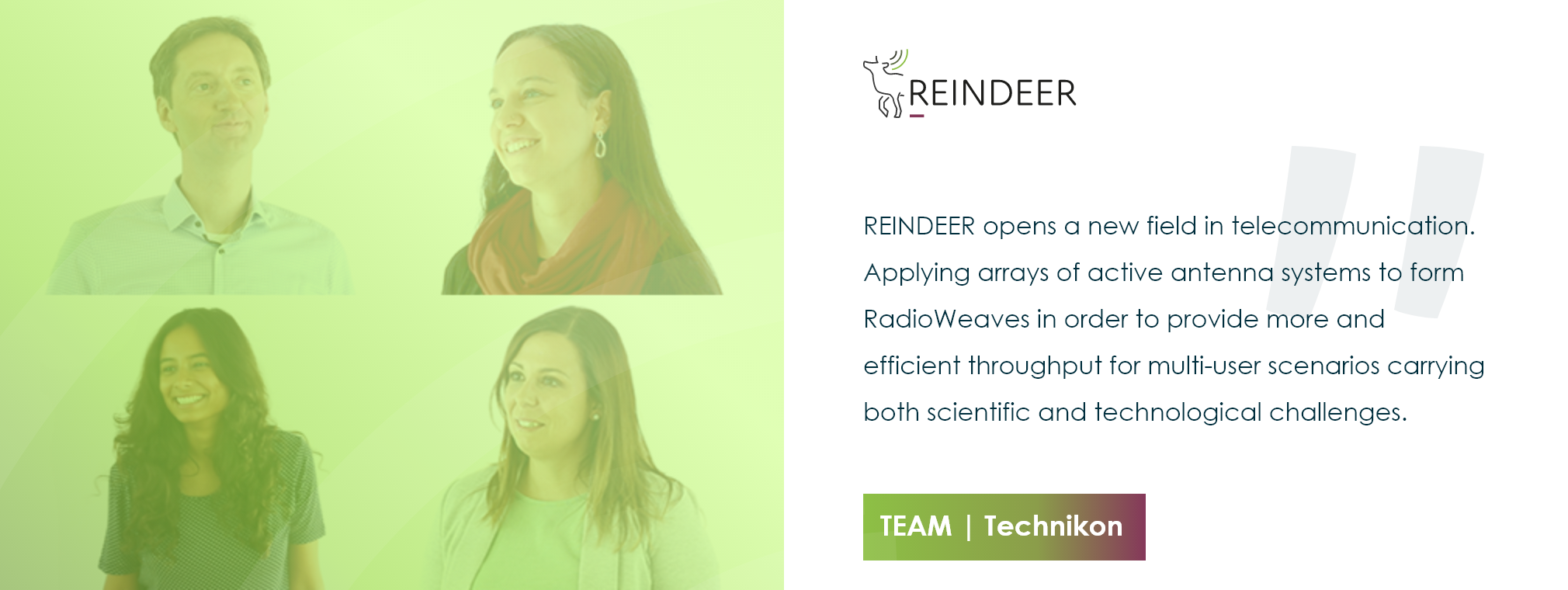Today in a talk with Martina Truskaller, Herbert Petautschnig, Marion Habernig and Luana Fabrete from Technikon Team – Austria – 5 questions about the team and the REINDEER H2020 project:
Introduce yourself and title and/or role in the project.
TECHNIKON (TEC) is a private independent Austrian SME with a highly specialized multinational team dedicated to industrial research services as well as the planning, assessment, and coordination of large industry-driven research projects, developing secure collaboration tools to manage and support RTD work.
Technikon Team:
Martina Truskaller, the project coordinator, holds a master’s degree in Business Administration and the position of Head of Project Management where she is actively involved on both sides, the project- risk- and innovation management, as well as in the research track. Herbert Petautschnig, the technical stakeholder, holds a master’s degree in Telematics and Network Engineering and has a strong background in Security Engineering. Marion Habernig holds a Bachelor’s degree and is well experienced in the coordination of FP7, ECSEL, and H2020 projects. Luana Fabrete is a Master’s student in the field of International Business Management having professional experience in project management and marketing.
What are your contributions to the project?
Technikon is contributing to the analysis, modelling and definition of use cases in REINDEER. Furthermore our team works on requirements with respect to the underlying security policies. Moreover, the Technikon management team coordinates REINDEER and is the interface between the project and the EC.
The Project Coordinator is a focal point for technical contribution and all administrative contents of REINDEER and chairs the General Assembly. Martina and her team addresses all technical and project management issues and ensures that the project meets or exceeds its stakeholders’ expectation.
Besides that, Technikon is responsible for the communication and dissemination strategy, planning and tools and maintains the project website and social media channels (LinkedIn, Twitter).
What challenges can you foresee in the project?
Due to the high technical complexity of REINDEER, there are several foreseen challenges and risks in the project.
One is the radically new RadioWeaves approach, which will be a challenge for the experimental validation. REINDEER opens a new field in telecommunication. Applying arrays of active antenna systems to form RadioWeaves in order to provide more and efficient throughput for multi-user scenarios carry both scientific and technological challenges. However, all Reindeer partners can revert back on their vast experience in the field.
How do you think the project outcome could affect our daily life?
The technologies developed in the REINDEER project will make connectivity technologies more secure and efficient to enable new user experiences, opening new opportunities for future industry and healthcare sector for example hospitals.
